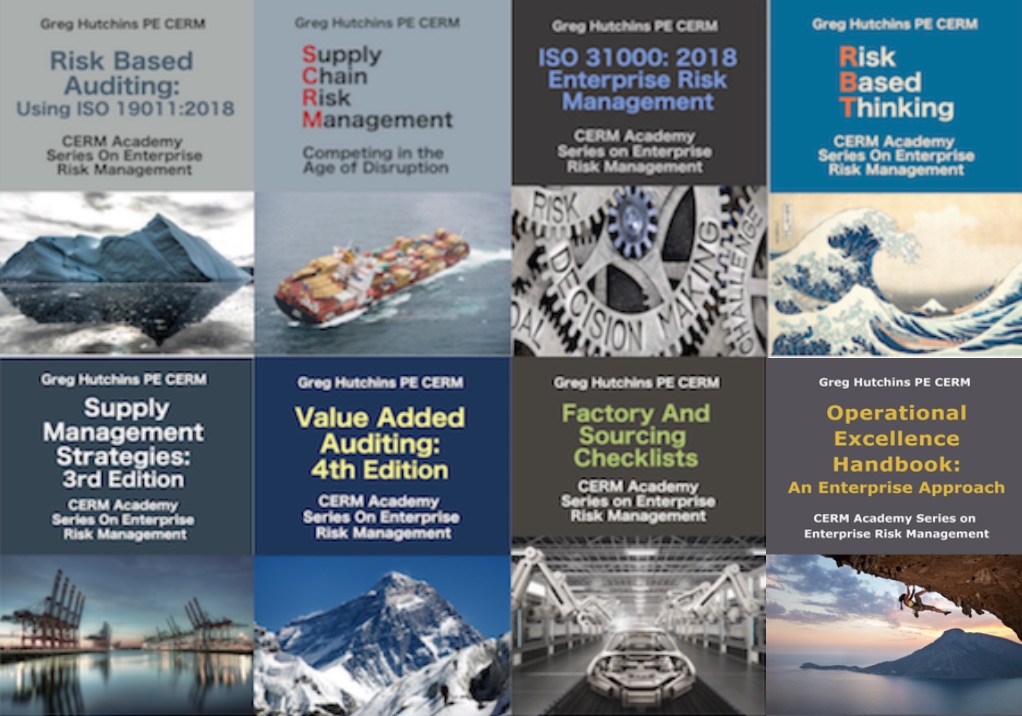 Did we get it all wrong? Wow! This could break our business model. Let me explain:
Did we get it all wrong? Wow! This could break our business model. Let me explain:
We developed Certified Enterprise Risk Manager® and all of our risk IP based on a simple fact. We live in VUCA time (volatility, uncertainty, complexity, ambiguity). We based our business business model on providing:
- Risk-based, problem-solving.
- Risk-based, decision-making.™
So, what’s the problem?
DAN ARIELLY’S MESSAGE
I listened to Dan Arielly give a talk called ‘Human Irrationality in Healthcare.’ Dan Arielly wrote the best selling book: Predictively Irrational: The Hidden Forces that Shape Our Decisions. Mr. Arielly studies how people act and why they do the things they do.
His basic thesis is that all sectors including healthcare are being disrupted. Change is omni-present. And, people and systems are not adapting quickly enough. And, they make decisions based on feelings and gut reactions, that are often irrational.
So, why are we scared? CERM and all risk frameworks are based on logical, step by step approaches to solving risk problems. CERM is based on a rational decision making model. If Mr. Arielly is right, then we’ll have to adapt our CERM model as well as everyone else who has
FURTHER DECISION MAKING TAKEAWAYS
There were a number of takeaways from Mr. Arielly’s talk. Some of the critical ones are listed below:
- Decisions are often made based on relationships and context.
- Many decisions are made on impulse and not thought out. Why? People are bombarded with advertising and imputes buys are easy.
- Most people don’t understand or consider risk in their problems solving or decision making.
- Big decisions are often the sum of a number of small, seemingly irrational decisions people make.
- Not making a decision is an option and is a decision. When we don’t know what to do, we don’t do anything.
- Decision making is often based on the path of least resistance. We don’t want to made any decision. So we wait. Circumstances make our decision.
- Decisions are not linear meaning that there sometimes/often does not seem to be a cause and effect.
- Smart choices are often based on form and design of the decision framework. In other words, the design and format of procedures are as important as the decision to be made.
- After the fact stories of why a decision are supposedly made to provide the relationship and context of why the decision was made the way it was.
WHAT’S THE SOLUTION?
So what the solution according to Dan Arielly?
- It’s all about self control and delayed self gratification.
- We can all slow down and make a decision over time and avoid impulse decision making.
- Practice rational decision making. Understand how you tick, what you want, and slow down the process to make the decision more rational.
- Learn and implement decision making tools such as loss aversion, reward substitution, changing your happiness/content factors.
- At the end of the day, smart problem solving and smart decision making is all about self control and being able to resist temptations.
What do you think? Can you avoid the next temptation such as chocolate, the new red care, or LV bag?
Bio:
Greg Hutchins PE and CERM (503.233.101 & GregH@QualityPlusEngineering.com) is the founder of:
CERMAcademy.com
800Compete.com
QualityPlusEngineering.com
WorkingIt.com
He is the evangelist behind Future of Quality: Risk®. He is currently working on the Future of Work and machine learning projects.
He is a frequent speaker and expert on Supply Chain Risk Management and cyber security. His current books available on all platform are shown below:
